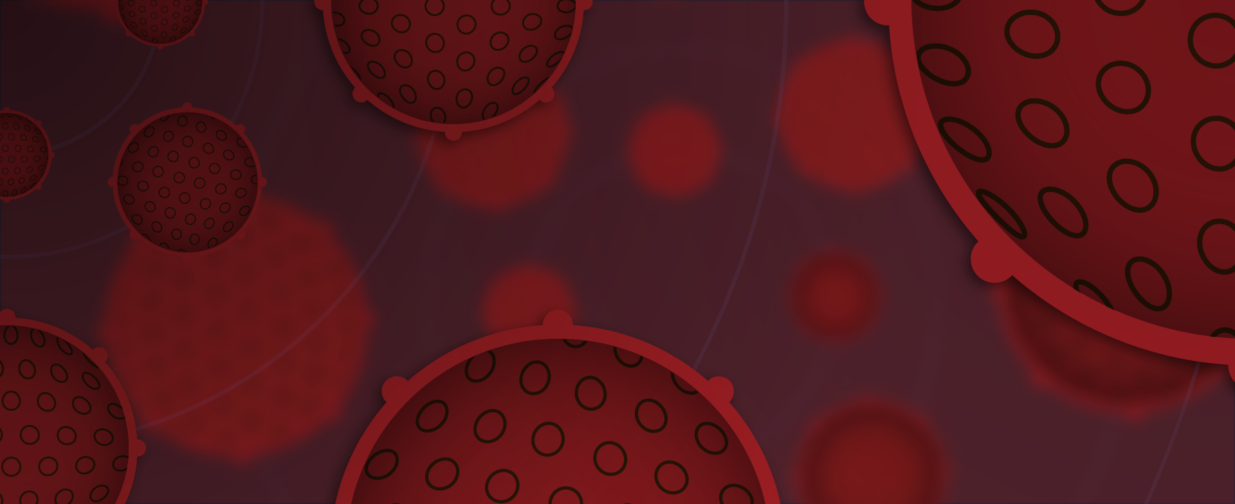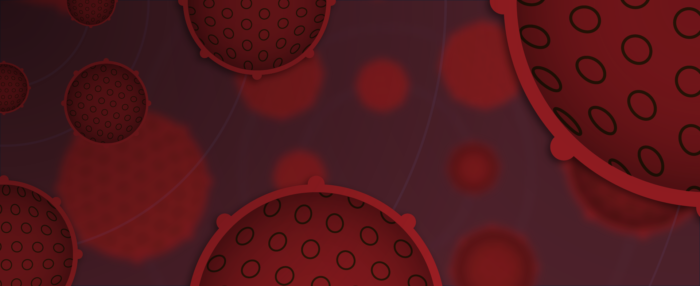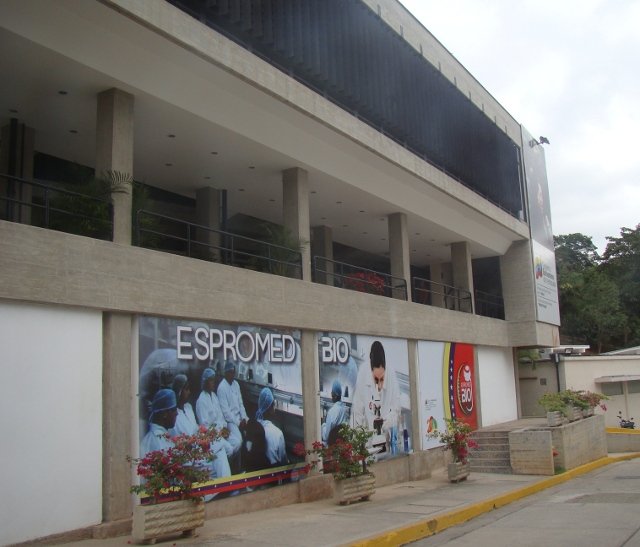

A contagious disease has reappeared in Venezuela. After 24 years of being considered eradicated, the inhabitants of the south of the country are experiencing a diphtheria outbreak of hitherto incalculable scales. Minister of Health Luisana Melo has recognized as official medical report only two deaths out of the four cases confirmed by her office until October 11. But several death certificates, collected in situ by Armando.info, indicate that the number of deaths is higher.
|
Getting your Trinity Audio player ready...
|
Diphtheria, the contagious disease eradicated 24 years ago in Venezuela, has reborn in Bolívar state (south of the country). Epidemiologists presume that the outbreak has arisen in an indigenous community, San Antonio Roscío, and has spread since April through other towns. At Hospital Raúl Leoni -known as Guaiparo- arrive suspicious cases from the states of Anzoátegui, Bolívar and Delta Amacuro. "Runny nose, swollen tonsils, signs like a cold. It could be confused with tonsillitis, but nobody dies of that. So when death comes, we suspect that it is diphtheria," says a doctor.
Eight-year-old Abismael Espinoza Rodríguez arrived at the Guaiparo hospital with this clinical condition, one night in late September. The parents of the child had gone first to a medical module of Barrio Adentro —the health program sponsored by former President Hugo Chávez with Cuba’s cooperation— in the town of San Félix. "The doctor said it was tonsillitis, so we went back home and just follow the treatment. But as days passed, he got worse. We decided to take him to a hospital and that's when the worst happened," says Gregoria Rodríguez, the boy's mother.
On October 11, the Minister of Health, Luisana Melo, spoke for the first time about the outbreak of the disease: "It is a regional issue, in Bolívar state only. Of all the suspected cases, four cases of diphtheria were found and two confirmed deaths. "But 12 days before these statements, there was another government diagnosis. Francisco Rangel Gómez, the governor of Bolívar, launched a much higher number in late September: "We have had 13 cases of diphtheria."
According to the death certificate of Abismael Espinoza, the child died as a result of diphtheric cardiomyopathy. Like his, the death certificates of three other children from Bolívar - Sara Bastardo, Jhoangely Alexandra Ochoa, and Dariervys Brazón -, issued between September 24 and October 10, and obtained by Armando.info, indicated diphtheria as the cause the deaths. For physicians in the health centers of Bolívar, witnesses of the resurgence of diphtheria, an epidemic is hidden. "The confirmation of cases is usually delayed, because almost all of the evidence is sent to Caracas. However, we already have several patients, dozens, and they do not know each other. There are more than 20 deaths from this disease. Even the pediatric ward of the hospital (Raúl Leoni) has been enabled to attend only potential patients of diphtheria," says a doctor at this hospital.
Diphtheria is a preventable disease. The expedited way to avoid an outbreak in the population is vaccination. In Venezuela, immunization depends on health programs run by the State. According to recommendations of the World Health Organization (WHO), countries should immunize 90 percent of the population, in this case with the vaccine known as DPT3, to prevent the re-emergence of this disease. However, this guideline has not been complied with in Bolívar state in the last decade.
It is not a regional problem, as the minister affirms
The parents of Abismael Espinoza do not remember if the child got the three doses of the vaccine against diphtheria. In 2008, the year in which Espinoza was born, coverage of the DPT3 vaccine in Bolívar state reached 16.5 percent, according to records of the Yearbook of the Expanded Program on Immunizations (1962-2009) of the Ministry of Health. The figures from entities have not been disclosed periodically in the last six years, although the Venezuelan Society of Public Health has got the feel of the epidemiological situation based on official and other leaked statistics. "Bolívar is one of the six most vulnerable states in Venezuela, because until mid-2016 the immunization coverage against this disease was at an annual rate of 42 percent. Other states in similar conditions are Barinas, Carabobo, Delta Amacuro, Monagas and Zulia. This reveals that it is not a regional problem, as the minister points out. It is already an epidemic, a single case is enough to be considered an epidemic, and it can expand to other places," says José Félix Oletta, a member of this organization and former Minister of Health.
Until a few days ago, there were no evident signs of health prevention. At the airport of Puerto Ordaz, in Bolívar, and at the main land terminals, the health conditions of the passengers were not examined. In contrast, the outbreak is considered a danger abroad, although the Pan American Health Organization (PAHO) has not yet issued an alert. In Guyana, which borders Venezuela precisely on the border of Bolívar state, they have implemented an intense vaccination campaign to prevent the spread of the disease, while the Ministry of Public Health of the Dominican Republic has recommended the medical staff of the International Airport of Las Americas to be vigilant with travelers from Venezuela in the face of the resurgence of diphtheria.

The parents of the four children whose death certificates indicate that they died of diphtheria admitted that they did not completed the required doses of the vaccines. "I always wanted to vaccinate my baby, but when I went to the outpatient clinic or the hospital, they told me that the vaccine had run out. At some point, I threw in the towel and did not keep going," says Melville.
Diphtheria vaccines depend on an agreement signed between Cuba and Venezuela, through the Socialist Company for the Production of Biological Medicines, Espromed Bio C.A., created on June 12, 2014 by a decree of President Nicolás Maduro.
However, Espromed Bio was not an invention of the Government. The vaccine plant, in Universidad central de Venezuela, already existed since 2000 and depended on the Rafael Rangel National Hygiene Institute. The Government only decided to transfer the administration directly to the Ministry of Health to reinforce its operation. The company was expected to meet the country's demand, since it is made up of three independent laboratories for the industrial fermentation process with the capacity to produce 160 million doses of diphtheria toxoid, anti-Pertussis vaccine and tetanus toxoid per year, and with a plant of formulation, filling and final processing, with an installed capacity of 120 million doses per year.
The emerging promise has not escaped from the Venezuelan decline though. Last year, Espromed Bio only produced the packaging and labeling of 21,718,906 doses of biological products and essential medicines to prevent diseases caused by viruses, bacteria, toxins, among other agents. Only 5,104,842 out of this amount —almost all the doses acquired from the agreement between Cuba and Venezuela—were distributed in the country. According to the 2015 Annual Report of the Ministry of Health, the company was victim of delays in the allocation of foreign currency to import spare parts and supplies for production, among other administrative obstacles.
The reappearance of diphtheria has coincided with the worst health crisis faced in Venezuela. The country, dependent on oil and subject to strict foreign exchange control, has fallen into a financial meltdown that causes a drop in imports. This situation has affected hospitals, pharmacies and laboratories that, in most cases, are supplied with inputs acquired abroad. It is estimated that there is almost a deficit of 85 percent of drugs -according to the Venezuelan Pharmaceutical Federation- and a growing deterioration of medical centers. But the Government of Maduro has coined the term of "economic war" to hold it responsible for all ills.
In the Christian church of the Buen Retiro neighborhood of San Felix, in the heart of Bolívar state, they have said a prayer for the soul of Saraí Bastardo. The inhabitants of this walled village still cannot find explanations for the sudden death of the girl. Solmaira Melville, the mother of Saraí, resents not having noticed in time the signs of faintness of the daughter: "Dyspnea, sore throat, stifling sensation in the chest. Since she was asthmatic, we thought that was what she had, and that she would improve with medication. But it was not that, it was diphtheria."
The outbreak of diphtheria has unleashed fear in Bolívar. Melville denounces that one of his three children has been isolated at school. "A teacher began to say that the child could not be with the other children; that he had to be subject to medical exams before rejoining. After the death of my baby, we have all been vaccinated. Already, after several complaints, the principal is aware of this and allowed the child to attend school," she says.
In the neighborhood of the Espinoza Rodriguez family, the mourners of Abismael, is already aware of the diphtheria due to the death of the child. "Ask about the mother of the child who died of diphtheria! Anyone can tell you where my home is," says Gregoria Rodríguez, when scheduling a journalistic interview.
The worst recipe applied by the Ministry of Health is "concealment" of information
According to Oletta, the worst recipe applied by the Ministry of Health is "concealment" of information. "Minister Melo has made a serious mistake. The worst that can be done in an epidemic is to say nothing or that everything is under control when it is not. In the end, that delegitimizes her. It also causes discrimination within the population due to uncertainty. Damage is being caused in the country due the bad policies and for not having the courage to rectify and admit that they have been wrong," he explains.
Since the health authority gave a statement on October 11, no more official figures on the outbreak have been released. Armando.info contacted the Ministry of Health to obtain updated statistics on diphtheria, but they responded that it was not possible to know them because Melo was in the presentation of Venezuela’s Human Rights report before the United Nations Organization in Geneva (Switzerland), and other spokespersons had to be authorized to give a statement.
The silence of the Ministry of Health is questioned. This week, Melo received strong criticism on Twitter, to the point of becoming a trend in the social network, by omitting the health crisis in Venezuela during her speech to the United Nations in Geneva, in the second Universal Periodic Review. She said that the government has distributed over 6.5 million vaccines to protect Venezuelans from 16 different types of diseases, but she failed to talk about diphtheria. There is also no information on the outbreak in the south of the country in the portal of health or in its social networks. The State apparatus continues admitting only two deaths caused by this disease, although at least twice as many deaths could be confirmed for this report. The silence is still official.
*This work had the support of the reporting work of Marcos David Valverde in Bolívar state.
Adrián Perdomo Mata has just entered the list of sanctioned entities of the US Department of the Treasury, as president of Minerven, the state company in charge of exploring, exporting and processing precious metals, particularly gold from the Guayana mines. His arrival in office coincided with the boom in exports of Venezuelan gold to new destinations, like Turkey, to finance food imports. Behind these secretive operations is the shadow of Alex Saab and Álvaro Pulido, the main beneficiaries of the sales of food for the Local Supply and Production Committee (Clap). Perdomo worked with them before Nicolás Maduro placed him in charge of the Venezuelan gold.
Gassan Salama, a Palestinian-cause activist, born in Colombia and naturalized Panamanian, frequently posts messages supporting the Cuban and Bolivarian revolutions on his social media accounts. But that leaning is not the main sign to doubt his impartiality as an observer of the elections in Venezuela, a role he played in the contested elections whereby Nicolás Maduro ratified himself as president. In fact, Salama, an entrepreneur and politician who has carried out controversial searches for submarine wrecks in Caribbean waters, found his true treasure in the main social aid and control program of Chavismo, the Clap, for which he receives millions of euros.
While the key role of Colombian entrepreneurs Alex Saab Morán and Álvaro Pulido Vargas in the import scheme of Nicolás Maduro’s Government program has come to light, almost nothing has been said about the participation of the traders who act as suppliers from Mexico. These are economic groups that, even before doing business with Venezuela, were not alien to public controversy.
Even though there are new brands, a new physical-chemical analysis requested by Armando.Info to UCV researchers shows that the milk powder currently distributed through the Venezuelan Government's food aid program, still has poor nutritional performance that jeopardizes the health of those who consume it. In the meantime, a mysterious supplier manages to monopolize the increasing imports and sales from Mexico to Venezuela.
Turkey and the coastal emirates of the Arabian Peninsula are now the homes of companies that supply the main social -and clientelist- program of the Government of Venezuela. Although the move from Mexico and Hong Kong, seems geographically epic, the companies has not changed hands. They are still owned by Colombian entrepreneurs Alex Nain Saab Morán and Álvaro Pulido Vargas, who control since 2016 a good part of the Import of food financed with public funds. Around the world for a business.
Since the borders to Colombia and Brazil are packed and there is minimal access to foreign currency to reach other desirable destinations, crossing to Trinidad and Tobago is one of the most accessible routes for those in distress seeking to flee Venezuela. Relocating them is the business of the 'coyotes' who are based in the states of Sucre or Delta Amacuro, while cheating them is that of the boatmen, fishermen, smugglers and security forces that haunt them.
When Vice President Delcy Rodríguez turned to a group of Mexican friends and partners to lessen the new electricity emergency in Venezuela, she laid the foundation stone of a shortcut through which Chavismo and its commercial allies have dodged the sanctions imposed by Washington on PDVSA’s exports of crude oil. Since then, with Alex Saab, Joaquín Leal and Alessandro Bazzoni as key figures, the circuit has spread to some thirty countries to trade other Venezuelan commodities. This is part of the revelations of this joint investigative series between the newspaper El País and Armando.info, developed from a leak of thousands of documents.
Leaked documents on Libre Abordo and the rest of the shady network that Joaquín Leal managed from Mexico, with tentacles reaching 30 countries, ―aimed to trade PDVSA crude oil and other raw materials that the Caracas regime needed to place in international markets in spite of the sanctions― show that the businessman claimed to have the approval of the Mexican government and supplies from Segalmex, an official entity. Beyond this smoking gun, there is evidence that Leal had privileged access to the vice foreign minister for Latin America and the Caribbean, Maximiliano Reyes.
The business structure that Alex Saab had registered in Turkey—revealed in 2018 in an article by Armando.info—was merely a false start for his plans to export Venezuelan coal. Almost simultaneously, the Colombian merchant made contact with his Mexican counterpart, Joaquín Leal, to plot a network that would not only market crude oil from Venezuelan state oil company PDVSA, as part of a maneuver to bypass the sanctions imposed by Washington, but would also take charge of a scheme to export coal from the mines of Zulia, in western Venezuela. The dirty play allowed that thousands of tons, valued in millions of dollars, ended up in ports in Mexico and Central America.
As part of their business network based in Mexico, with one foot in Dubai, the two traders devised a way to replace the operation of the large international credit card franchises if they were to abandon the Venezuelan market because of Washington’s sanctions. The developed electronic payment system, “Paquete Alcance,” aimed to get hundreds of millions of dollars in remittances sent by expatriates and use them to finance purchases at CLAP stores.
Scions of different lineages of tycoons in Venezuela, Francisco D’Agostino and Eduardo Cisneros are non-blood relatives. They were also partners for a short time in Elemento Oil & Gas Ltd, a Malta-based company, over which the young Cisneros eventually took full ownership. Elemento was a protagonist in the secret network of Venezuelan crude oil marketing that Joaquín Leal activated from Mexico. However, when it came to imposing sanctions, Washington penalized D’Agostino only… Why?
Through a company registered in Mexico – Consorcio Panamericano de Exportación – with no known trajectory or experience, Joaquín Leal made a daring proposal to the Venezuelan Guyana Corporation to “reactivate” the aluminum industry, paralyzed after March 2019 blackout. The business proposed to pay the power supply of state-owned companies in exchange for payment-in-kind with the metal.